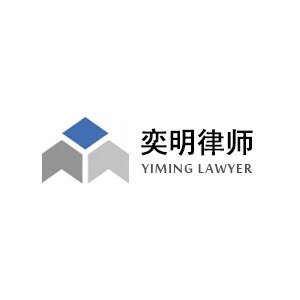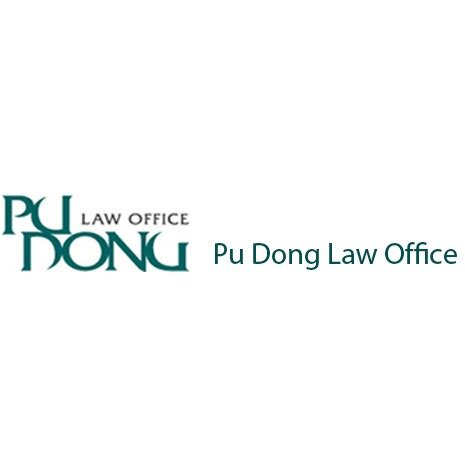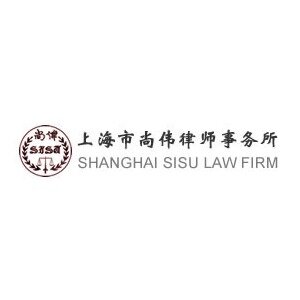Best Disability Lawyers in China
Share your needs with us, get contacted by law firms.
Free. Takes 2 min.
Or refine your search by selecting a city:
List of the best lawyers in China
About Disability Law in China
Disability law in China is rooted in a variety of legislative and regulatory frameworks aimed at protecting the rights and welfare of people with disabilities. The cornerstone of these laws is the Law on the Protection of Persons with Disabilities, enacted in 1990 and amended in 2008. This legislation defines a person with a disability as someone with physical, intellectual, or mental impairments, and outlines their rights to access education, employment, medical services, social security, and barrier-free facilities. China has also ratified the United Nations Convention on the Rights of Persons with Disabilities, further underscoring its commitment to this global cause.
Why You May Need a Lawyer
There are several situations where individuals with disabilities or their families may require legal assistance in China. These include discrimination in employment or education, denial of access to public facilities, failure to provide necessary accommodations, disputes over social security benefits, and issues related to guardianship or personal injury claims. Navigating these legal challenges can be complex, and a lawyer can ensure that your rights are upheld and that you receive the appropriate remedies.
Local Laws Overview
Chinese disability law is predominantly guided by the Law on the Protection of Persons with Disabilities. Key features include:
- Equal Employment Opportunities: Employers are required to hire a certain percentage of employees with disabilities and provide reasonable accommodations.
- Educational Rights: Schools must not exclude students based on disabilities and should provide supportive learning environments.
- Barrier-Free Environment: Public buildings and transportation systems are mandated to be accessible to people with disabilities.
- Social Security: People with disabilities are entitled to various forms of social welfare and assistance to ensure they maintain a basic standard of living.
- Healthcare: Access to basic health services and rehabilitation for people with disabilities must be provided.
Frequently Asked Questions
What legal protections are available for people with disabilities in the workplace?
The Law on the Protection of Persons with Disabilities requires employers to fulfill a quota for hiring people with disabilities. Employers must also provide necessary workplace accommodations to enable employees with disabilities to perform their jobs effectively.
How can I secure educational accommodations for my child with a disability?
Parents can apply for accommodations through their child's school by submitting relevant medical or psychological evaluations. Schools are required to provide supportive educational environments under national policy.
Are there specific provisions for accessibility in public places?
Yes, national regulations mandate accessible design standards for public buildings, transportation, and housing to ensure that they are accessible to individuals with disabilities.
What are the social security benefits available to people with disabilities in China?
China provides social security benefits that include disability pensions, government-provided assistance, and subsidies for rehabilitation services. Eligibility and the extent of benefits can vary based on severity and region.
How does China enforce disability rights?
Enforcement is carried out by various governmental agencies, including the China Disabled Persons' Federation and local branches, which provide oversight and handle complaints from individuals with disabilities.
Can people with disabilities claim compensation for discrimination?
Yes, individuals can file a complaint with local labor or civil courts if they experience discrimination. Compensation may include monetary damages or orders for specific accommodations.
What measures are in place for public transportation accessibility?
According to regulations, public transportation systems are required to ensure accessibility through infrastructural adjustments, such as ramps, elevators, and designated seating areas.
How can I find legal aid for disability issues in China?
Legal aid can be accessed through government-run legal aid centers or by contacting lawyers specializing in disability rights. The China Disabled Persons’ Federation can also provide guidance and referrals.
What can I do if my rights as a person with a disability are violated?
First, document all instances of violation and seek legal advice. You may file a formal complaint with relevant government bodies or pursue legal action through the courts with the help of a lawyer.
Is there a government body that oversees disability rights?
Yes, the China Disabled Persons’ Federation and its local branches play a major role in overseeing the implementation of disability rights and providing support services.
Additional Resources
For further assistance and information on disability rights in China, consider reaching out to the following resources:
- China Disabled Persons' Federation
- Local Legal Aid Centers
- International organizations like Handicap International
- Non-governmental organizations focused on disability advocacy
Next Steps
If you need legal assistance, start by gathering all relevant documentation regarding your case or the disability-related issue you are facing. Reach out to a lawyer who specializes in disability law or contact local legal aid centers for support. Engaging with advocacy groups can also provide additional guidance and resources to help you navigate the legal process effectively.
Lawzana helps you find the best lawyers and law firms in China through a curated and pre-screened list of qualified legal professionals. Our platform offers rankings and detailed profiles of attorneys and law firms, allowing you to compare based on practice areas, including Disability, experience, and client feedback.
Each profile includes a description of the firm's areas of practice, client reviews, team members and partners, year of establishment, spoken languages, office locations, contact information, social media presence, and any published articles or resources. Most firms on our platform speak English and are experienced in both local and international legal matters.
Get a quote from top-rated law firms in China — quickly, securely, and without unnecessary hassle.
Disclaimer:
The information provided on this page is for general informational purposes only and does not constitute legal advice. While we strive to ensure the accuracy and relevance of the content, legal information may change over time, and interpretations of the law can vary. You should always consult with a qualified legal professional for advice specific to your situation.
We disclaim all liability for actions taken or not taken based on the content of this page. If you believe any information is incorrect or outdated, please contact us, and we will review and update it where appropriate.
Browse disability law firms by city in China
Refine your search by selecting a city.












